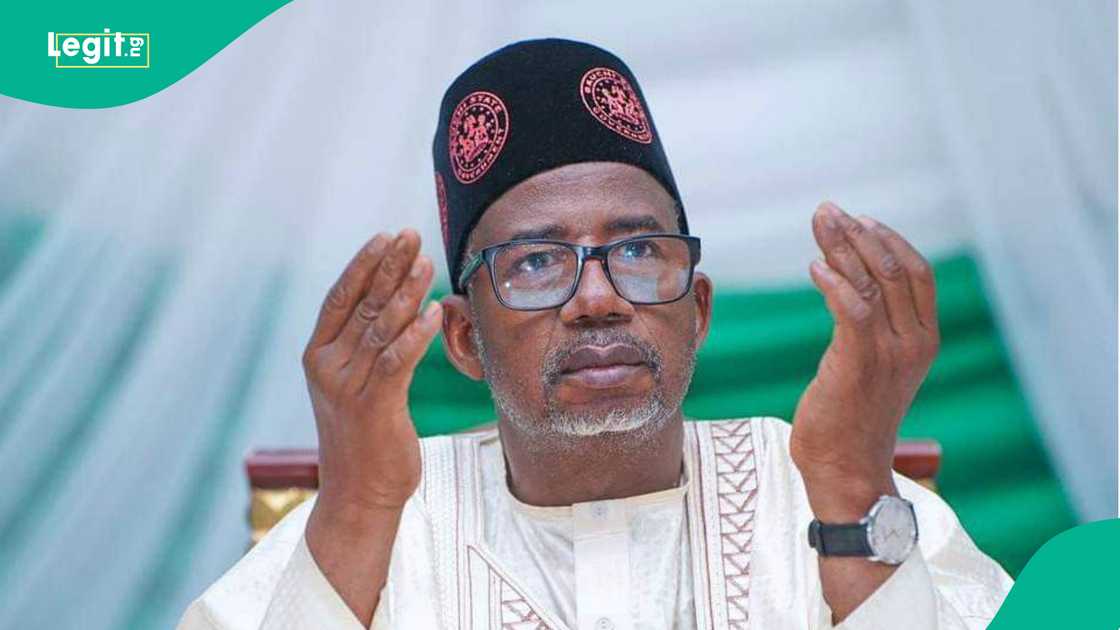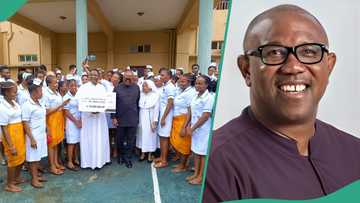UNICEF Report: Only 9% of Bauchi’s Schoolchildren Can Read, Emirs React
- Alarmed by UNICEF's findings that only 9% of children in Bauchi State can read, the state's emirs have raised urgent concerns about the state of education
- With thousands of primary schools but only a fraction equipped with Early Childhood Centers, the infrastructure is believed to be woefully inadequate
- Emphasizing the need for immediate action, Emir of Dass, Alh. Usman Bilyaminu Othman, has called for stricter monitoring of education
The six emirs in Bauchi State have raised concern after the United Nations Children's Fund (UNICEF) data on children with reading skills went public.
In the data, reading skills for Bauchi state children stood at 9 per cent among kids aged 7-14.

Source: Twitter
According to UNICEF, the State Education Sector Plan stated that the total number of public primary schools is 3,295, with only 448 Early Childhood Centers (ECD).
Even in the face of policy that clearly indicates that each primary school should have a functional ECD centre. The number of Junior Secondary Schools stands at 784.
Alarming data raises concern among Emir
"All this contributes to the distance of schools from home and the high pupil-classroom ratio," it said.
While speaking at a one- day community mobilisation and back-to-school campaign taken to the emirs’s palace, UNICEF Chief of Field Office Bauchi, Dr. Nuzhat Rafique, Bauchi, said that the learning outcome for children at the basic education level in the country is the worst, particularly in the northeast.
She said:
"In Bauchi, the early childhood development index indicated that only 26% of children are on track, the foundational reading skills for ages 7-14 stand at 9%, while the foundational numeracy for the same age category stands at 8%.

Read also
New curriculum expected as FG okays plumbing, hairstyling, others for primary, secondary schools
“Numerous obstacles prevent consistent learning achievement, school attendance, timely enrollment, and completion. Some of these obstacles include inadequate evidence-based policy and planning, limited budget allocation, significant shortages of qualified teachers and classrooms, poor infrastructure, poor teachers remuneration, cultural norms, health and safety worries, and dependence on children for income and household tasks. The situation calls for a concerted effort by the relevant stakeholders to address these challenges."
The Emir of Dass Alh. Usman Bilyaminu Othman, called for significant monitoring of the state education workforce and infrastructure.
In his words:
“I have been personally going around in my domain monitoring schools and hospitals. I went toa school, met a few teachers while many of them were absent...I recommended SUBEB to lay them off.”
50% of children can’t read
Meanwhile, Legit.ng earlier reported that the Enugu State Government's Secretary, Prof. Chidiebere Onyia, has raised concerns about education, revealing that approximately half of the children in the region cannot read or solve fundamental mathematical problems.

Read also
Photos emerge as Peter Obi donates N50m to Shanahan Varsity, N10m to Anambra nursing school
This revelation was made at the quadrennial convention of the Old Boys Association of Union Secondary School in Awkunanaw, Enugu, where Onyia delivered a keynote address.
PAY ATTENTION: Сheck out news that is picked exactly for YOU ➡️ find the “Recommended for you” block on the home page and enjoy!
Source: Legit.ng



